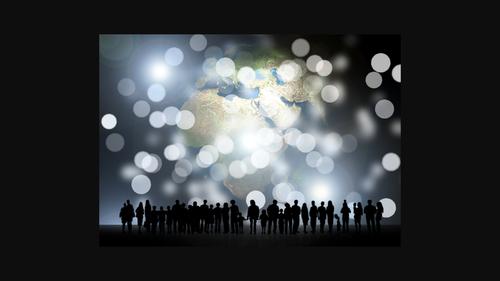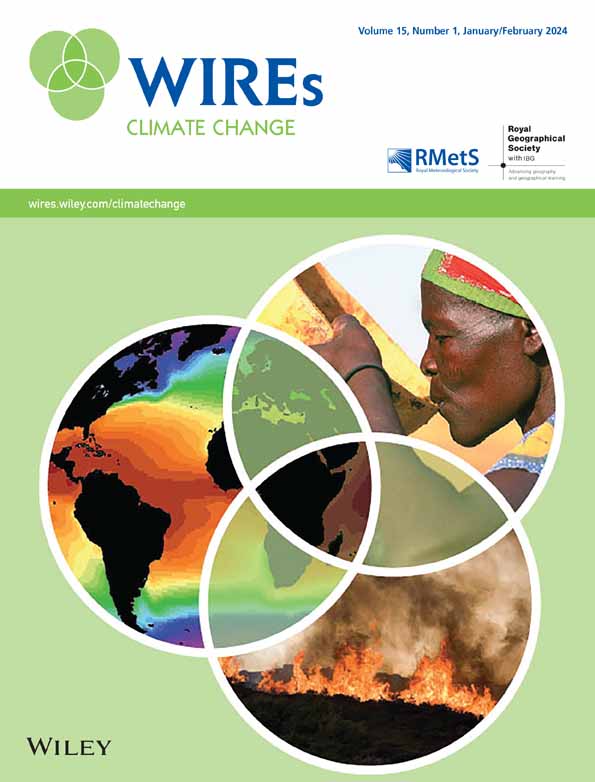应对气候变化的集体责任
IF 10.3
1区 环境科学与生态学
Q1 ENVIRONMENTAL STUDIES
引用次数: 3
摘要
气候变化可以从两个不同的角度解释为集体责任问题:气候变化本质上是一个集体问题,或者是对气候变化负有责任的集体实体。因此,在讨论气候变化的集体责任时,“集体”可以指气候变化问题本身,也可以指造成伤害和/或承担责任的实体。第一种观点侧重于气候变化是如何集体造成的伤害。集体行动问题是指个人行动的集合,这些行动共同产生了一个不打算在个人行动层面上产生的结果。任何一个代理人单方面行动都无法解决这一问题。相反,气候变化行动必须得到众多行动者的颁布和支持。将气候变化概念化为集体责任问题的第二种方法侧重于对气候变化负有责任的集体实体。作为一个全球性问题,气候变化与国际政治领域有关,在国际政治领域,国家、政府和政府间组织是主要的集体实体。在气候责任方面,其他重要的代理集体是企业,包括产生大部分排放的碳排放巨头。气候变化也被认为是一种结构性的不公正,它结合了两种观点中关于气候变化的集体责任的因素。本文章由计算机程序翻译,如有差异,请以英文原文为准。

Collective responsibility for climate change
Climate change can be construed as a question of collective responsibility from two different viewpoints: climate change being inherently a collective problem, or collective entities bearing responsibility for climate change. When discussing collective responsibility for climate change, “collective” can thus refer to the problem of climate change itself, or to the entity causing the harm and/or bearing responsibility for it. The first viewpoint focuses on how climate change is a harm that has been caused collectively. Collective action problem refers to an aggregation of individual actions which together produce an outcome that is not intended at the level of an individual action. It cannot be solved by any one agent acting unilaterally. Instead, climate change action must be enacted and supported by numerous agents. The second way to conceptualize climate change as a question of collective responsibility focuses on the collective entities that bear responsibility for climate change. As a global problem, climate change is linked to the realm of international politics, where states, governments, and intergovernmental organizations are the main collective entities. Other important agential collectives in terms of climate responsibility are corporations, including carbon majors who have produced the bulk of emissions. Climate change has also been theorized as a structural injustice, which combines elements from both the viewpoints on what is collective about responsibility for climate change.
求助全文
通过发布文献求助,成功后即可免费获取论文全文。
去求助
来源期刊

Wiley Interdisciplinary Reviews: Climate Change
METEOROLOGY & ATMOSPHERIC SCIENCES-
CiteScore
20.00
自引率
2.20%
发文量
58
审稿时长
>12 weeks
期刊介绍:
WIREs Climate Change serves as a distinctive platform for delving into current and emerging knowledge across various disciplines contributing to the understanding of climate change. This includes environmental history, humanities, physical and life sciences, social sciences, engineering, and economics. Developed in association with the Royal Meteorological Society and the Royal Geographical Society (with IBG) in the UK, this publication acts as an encyclopedic reference for climate change scholarship and research, offering a forum to explore diverse perspectives on how climate change is comprehended, analyzed, and contested globally.
 求助内容:
求助内容: 应助结果提醒方式:
应助结果提醒方式:


